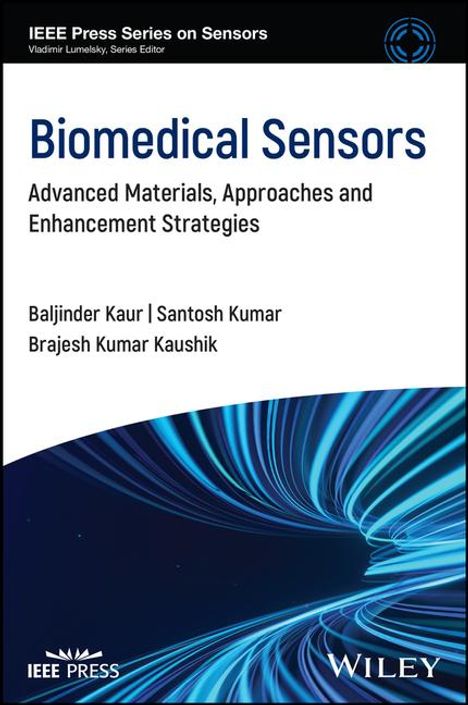Baljinder Kaur: Biomedical Sensors, Gebunden
Biomedical Sensors
- Nanomaterials, Approaches, and Performance-Enhancement Strategies
(soweit verfügbar beim Lieferanten)
- Verlag:
- Wiley, 12/2024
- Einband:
- Gebunden
- Sprache:
- Englisch
- ISBN-13:
- 9781394268207
- Artikelnummer:
- 11721163
- Umfang:
- 336 Seiten
- Gewicht:
- 612 g
- Maße:
- 229 x 152 mm
- Stärke:
- 19 mm
- Erscheinungstermin:
- 12.12.2024
- Hinweis
-
Achtung: Artikel ist nicht in deutscher Sprache!
Klappentext
Comprehensive resource covering new technologies, materials, strategies, and recent advancements in the field of biosensing
Biosensors summarizes cutting-edge technologies in biosensing, including gene editing (known as Clustered Regularly Interspaced Short Palindromic Repeat or CRISPR), quorum sensing utilizing inter and intra cell signals, two-dimensional (2D) materials and aptamer-mediated sensor designs, and more, with additional coverage of the latest materials, strategies, and advancements made in the field.
Chapters are categorized on the basis of various bio-recognition elements that include aptamer, nucleic acid, enzymes, antibodies, bacteriophages, peptides, and molecular imprinted polymers. Plasmonic, surface-enhanced Raman scattering, colorimetric, fluorescence, electrochemical, magneto and piezo-electric biosensor sensing techniques are also considered. The roles of various nanomaterials, advancement in synthesis, signal enhancement strategies, and new trends for biomedical applications are also described. Current challenges, limitations, and future prospects to developing biosensors for point-of-care and clinical applications are also discussed.
Written by three highly qualified authors, Biosensors includes information on:
- Diverse bio-receptors include nucleic acids, aptamers, enzymes, antibodies, bacteriophages, molecularly imprinted polymers, whole-cell, and techniques of immobilization
- Different transduction principles using bio-receptors (e. g., optical, electrochemical, piezo-electrical, and SERS) to detect microorganism, toxins, and diseases
- Nanomaterials synthesis, their role in biosensing, pros and cons of carbon, polymer, metals, metal oxides, and quantum dots-based nanomaterials in medical biosensing applications
Biosensors is a comprehensive and complete resource on the subject for researchers and professionals in physics, chemistry, and biomedical science, research communities working in the fields of plasmonics, optics, biosensors, and nano-photonics, and students in related programs of study.


